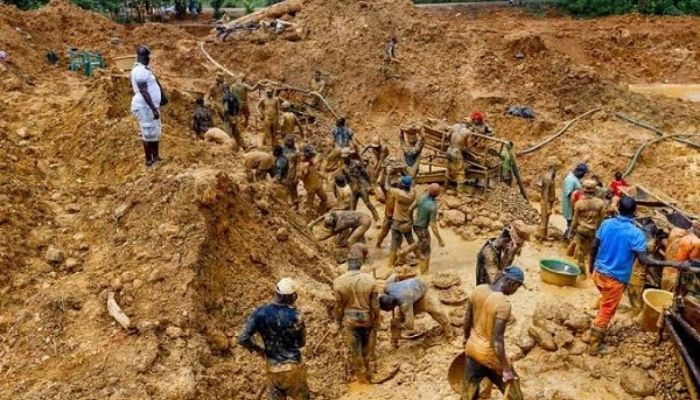Text of a tribute by Second Republic governor of Kaduna State, Abdulkadir Balarabe Musa, for and on behalf of the People's Redemption Party (PRP)
It is with a deep sense of loss, but in total submission to the will of Allah for a full life of commitment and service to humanity, that we in the Peoples Redemption Party (PRP) join other Nigerians in mourning the passing away of our comrade, compatriot, friend and brother, Dr. Yusufu Bala Usman, which sad event occurred in the afternoon of Saturday, September 24, 2005 at the ancient city of Zaira in Kaduna State.
Born 60 years ago at Musawa in present-day Katsina State, Dr. Yusufu Bala Usman personified, in a relatively short and eventful lifetime, the best in contemporary Nigerian scholarship, political activism and responsible citizenship. In many more ways than one, his life and work marked a watershed in Nigeria's evolution as a nation. For instance, his birth, in the historic year of 1945, when the Second World (imperialist) War came to an end, in itself came at a watershed in contemporary world history. So did the commencement of his active scholarly career. This began in the early 1970s and coincided with a watershed period of scholarly ferment in our institutions of higher learning during which the then reactionary, right-wing and neo-colonialist academic diet of research and instruction came under the onslaught of a new generation of academics with a radically new, progressive and nationalistic orientation. Yusufu Bala Usman, along with Segun Osoba and Bode Onimode, to mention but a few, were at the forefront of this new ferment - a ferment, which subsequently inspired and re-oriented generations of Nigerian university graduates and changed for good, the content, tenor and direction of higher education in Nigeria.
As a scholar, Bala (as he was fondly called) was as thorough as he was brilliant. The excellence of his academic pursuits is attested to by the corpus of books, treatise, papers and pamphlets he has left behind as his scholarly legacy. From his path-finding and seminal PhD thesis titled The Transformation of Katsina, 1400-1883, through his The Emergence and Overthrow of the Sarauta System and the Establishment of the Empire to the more polemical For the Liberation of Nigeria and Nigerian Against the IMF et cetera, what shines throughout Bala's works is the diligent and systematic search for the underlying trust hidden under layers of superficial rubbish. Yusufu Bala Usman was a scholar who clinically disemboweled historical phenomena with a view to not only understanding its past and present structure but also its internal dynamics and future directions.
But Bala's goal as a scholar was not the search for knowledge just for knowledge's own sake. Like Karl Marx, he believed that it was the responsibility of scholarship to put knowledge at work in the noble task of improving the human condition. He was one who had the courage to put the theories he believed in to the test of practice, so that those theories may be better grounded in the concrete realities of existing society. Philosophers may be in the business of interpreting the world to laymen like you and I. The critical task, however, was to change it. It is this commitment, this social responsibility, to put knowledge at the service of human progress that informed Bala's activist role in the country.
Yusufu Bala Usman's political activism began very early in his life, even as a student at Bida and in Great Britain. However, it became first noticeable at the national stage with his participation in the Constitution Drafting Committee (CDC) in 1975-76 during which the few left-leaning elements in the Committee repeatedly clashed with the right-wing majority whom the ruling military had loaded the Committee with. When, as expectedly the views of the left were excluded from the CDC's majority report, Bala and Segun Osoba decided to release their own report, tagged the minority report, to the public, the duo then embarked on a nationwide tour to familiarise Nigerians with the contents of their report. This tour succeeded tremendously in raising public consciousness on the issues at stake.
When the ban on politics was lifted in 1978, Dr. Bala joined the Peoples Redemption Party (PRP) where he played very important roles and was a respected member of its leadership both in the old Kaduna State and at the national level. He remained with the party, throughout its triumphs and travails, right up to 1999.
In addition to his partisan political role, Bala was also actively involved in the trade union movement. He served for several years as a trustee of the Nigerian Labour Congress. He was also a motivating force in the Academic Staff Union of Nigerian Universities (ASUU).
As a responsible and activist citizen, Bala believed in the critical role of the civil society in the promotion of good governance and an accountable and responsible political leadership. He was a tireless anti-corruption crusader who spared no opportunity to expose corruption wherever it was to be found. He served on tribunals set up to probe the corrupt practices of high public office holders. He also contributed to many panels set up to review and re-align Nigeria's public policies, particularly in the foreign and economic policy fields.
Of course, like all human beings, Yusufu Bala Usman was not without his own weaknesses. Sometimes, his tenacity for excellence, hard work and thoroughness made him appear bullish, intolerant and overbearing to many. His frequent clashes with political "enemies" tended to make him easily too suspicious of other people's motives. He was also one who never suffered fools gladly. These notwithstanding, few will deny that Yusufu Bala Usman was a quintessential academic, who put his academic theories through the crucible of political praxis. Few will deny that in politics, his primary concern was to contribute to the upliftment of the material and social conditions of the mass of the working people of Nigeria. Few also will deny that as a citizen, he rose above the reactionary manipulation of ethnic, sectional, religious and other differences among the people. He was, indeed, a member of a dying breed of committed Nigerian intellectuals, activists, progressives and crusaders. One of the challenges of his untimely death to the Nigerian academia is whether it will have the capacity to reproduce his type, particularly when one takes into account the fact that before Dr. Bala's death, Dr. Mahmud Tukur, Dr. Kolagbode and Dr. Ola Oni, who were scholars and activists and who combined theory with practice, had died and had not been replaced after more than 25 years. Only Prof. Esko Toyo, who is in the same class with them, is still alive today.
For us in the PRP, we mourn the death of Bala with optimism. In death, as in life, Yusufu Bala Usman shall continue to loom larger than life. The example of his life shall continue to inspire new generations of Nigerian intellectuals as well as others - to continue to devote their energies, their skills and their lives to, and for the liberation of Nigeria. It is in this sense, therefore, that Yusufu Bala Usman has cheated death.
Adieu, Comrade Yusufu Bala Usman.
RETURN

Civil Society and Social Movements: The Role of Activism and Radical Politics in Deepening Democracy in AfricaByOtive Igbuzor, PhDFounding Executive D...

Chimaroke Nnamani: Progenitor of Ebeano politics at 64By Paul MumehChimaroke-Nnamani2.jpg 88.87 KBHate or love him, Senator Chimaroke Nnamani; fo...

Background To The Recent Nigerian ElectionsGeneral Obasanjo more than just a "friend" of the AmericansElizabeth Liagin is an independent journalist wh...

Sustainable Development and Mining Host communities ByOtive Igbuzor, PhD, FPSN, FSM, MIoL, UKAfrican Centre for Leadership, Strategy & ...

THE CASE FOR CIVIL SOCIETY ORGANISATIONS (CSO) SELF-REGULATIONByOtive Igbuzor, PhDFounding Executive Director,African Centre for Leadership, Strategy ...